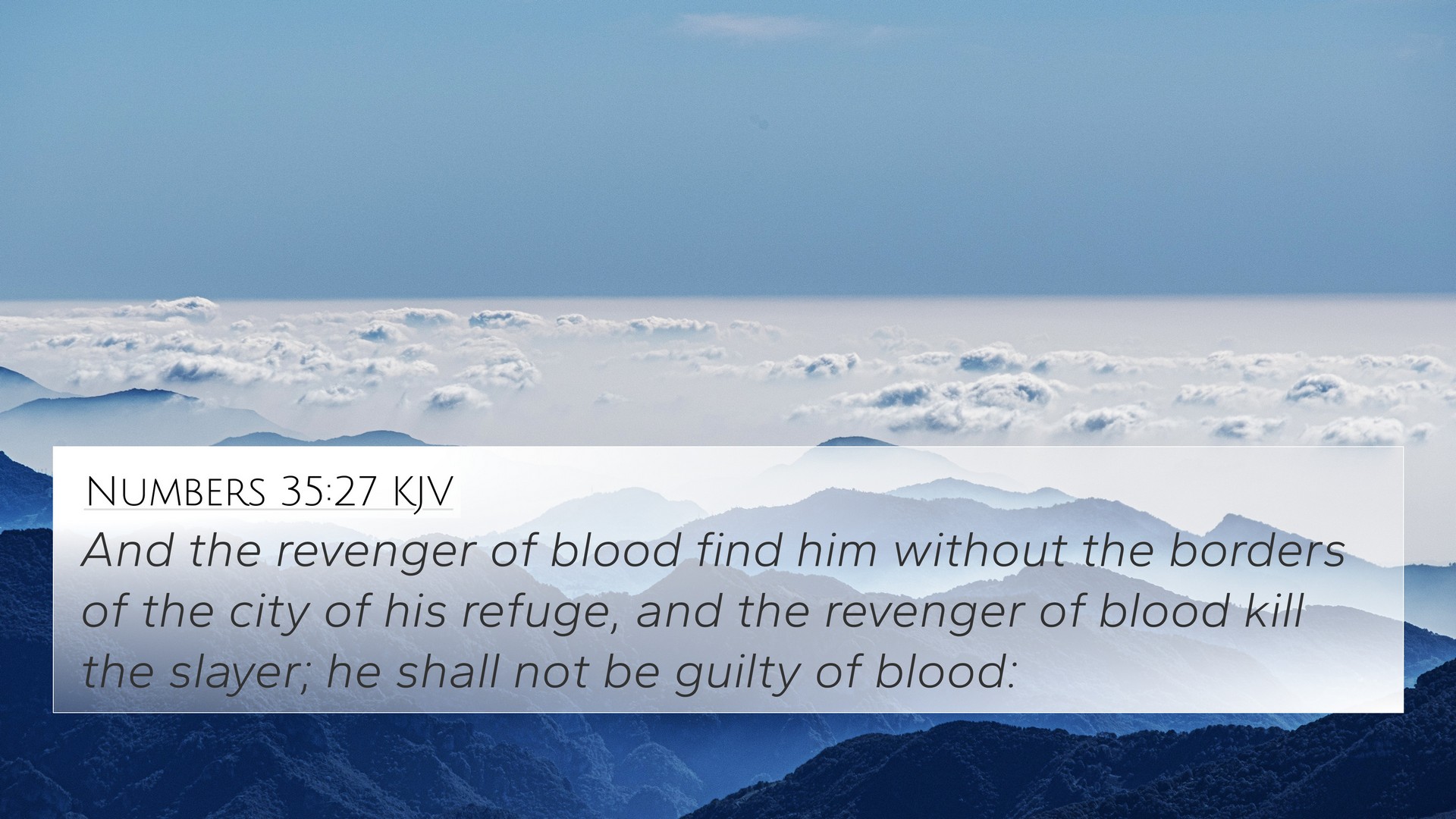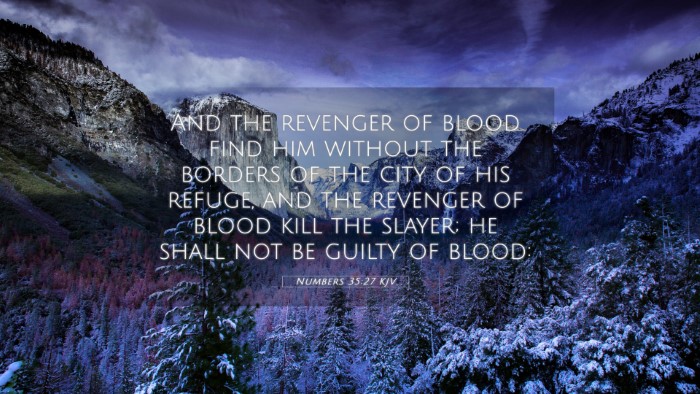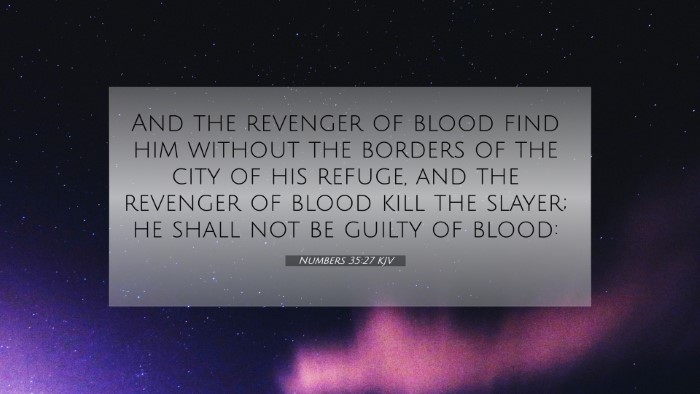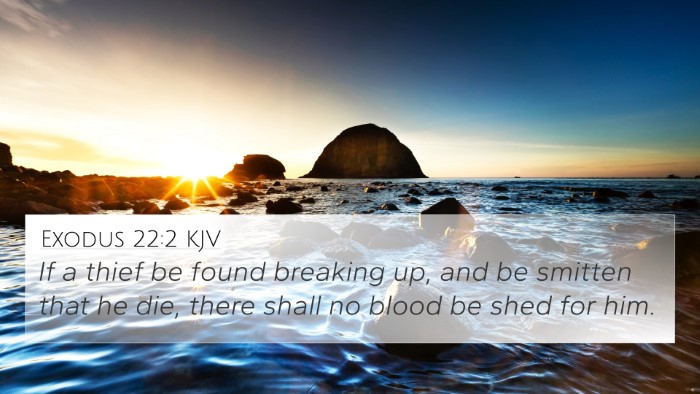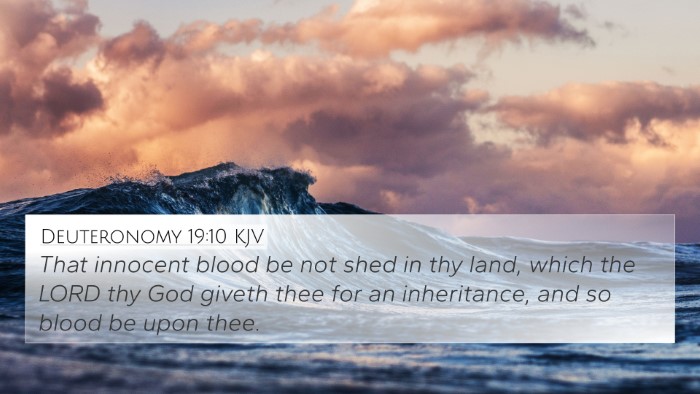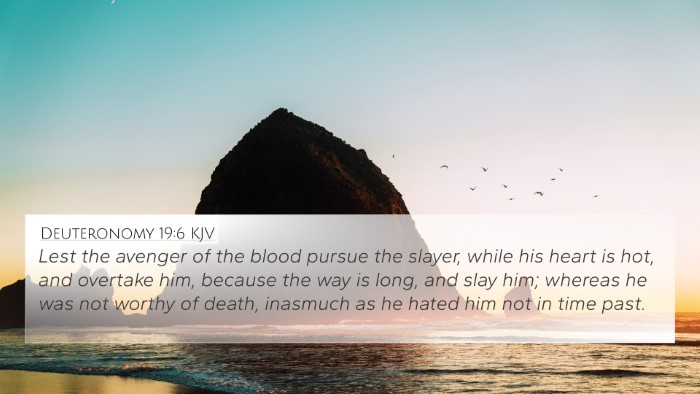Understanding Numbers 35:27
Verse: Numbers 35:27 states, "And the revenger of blood find him without the borders of his city of refuge, and the revenger of blood kill the slayer; he shall not be guilty of blood."
Summary: This verse addresses the importance of the cities of refuge established for those who unintentionally commit manslaughter. It highlights the precarious nature of safety and sanctuary within these cities.
Commentary Insights
This verse is frequently discussed in the context of how divine justice aligns with human actions. Various public domain commentators provide insights that deepen our understanding of this scripture:
-
Matthew Henry:
Henry emphasizes that the cities of refuge were provided as a mercy from God for those who might commit accidental manslaughter, distinguishing between intentional murder and accidental killing. The verse illustrates that if one exits the city of refuge, they are at risk of retribution from the avenger of blood, which serves to reinforce the importance of seeking shelter within God’s designated protections.
-
Albert Barnes:
Barnes explains that this law illustrates the principle of personal responsibility. By leaving the city of refuge, the slayer assumes risks and loses the protection afforded to him by the city. It indicates that while God's mercy is accessible, one must remain within the parameters set by divine law to benefit from that mercy.
-
Adam Clarke:
Clarke comments on the role of the avenger of blood, a familial responsibility intended to maintain justice and honor within communities. He outlines that the revenger's actions were justified if the slayer stepped outside the protective boundaries, reinforcing the significance of adhering to the structures of justice established by God.
Related Bible Cross-References
Numbers 35:27 connects with several other Bible verses, providing a thematic continuity and depth to the understanding of refuge, justice, and divine protection:
- Exodus 21:13 - Discusses the concept of accidental manslaughter and the provision of refuge.
- Deuteronomy 19:3 - Refers to the establishment of cities of refuge and the importance of intent in committing harm.
- Joshua 20:4-6 - Details the process by which a person could claim sanctuary within a city of refuge.
- Hebrews 6:18 - Highlights God’s promise as a refuge for believers, paralleling the concept of physical haven in Numbers.
- Numbers 35:25 - Talks about the high priest who served as a mediator for the slayer, emphasizing divine intervention and mercy.
- Matthew 5:21-22 - Illustrates the broader implications of murder and anger, inviting a deeper moral reflection on intentions.
- Romans 12:19 - Advises against personal vengeance, aligning with the theme of seeking refuge and divine justice.
Thematic Connections
The connections between Numbers 35:27 and the referenced verses highlight several themes in biblical narrative, particularly:
- Divine Justice: Emphasizing the balance God maintains between justice and mercy.
- Human Responsibility: The necessity of individuals to adhere to God’s structures for safety and protection.
- Intent vs. Action: The importance of understanding the difference between purposeful and accidental acts as it pertains to sin.
Conclusion
In conclusion, Numbers 35:27 serves as a poignant reminder of the balance between justice and mercy within biblical texts. By cross-referencing related scriptures, one can gain deeper insight into the rich, interconnected tapestry that forms biblical teachings on forgiveness, safety, and the responsibilities of individuals and communities.
